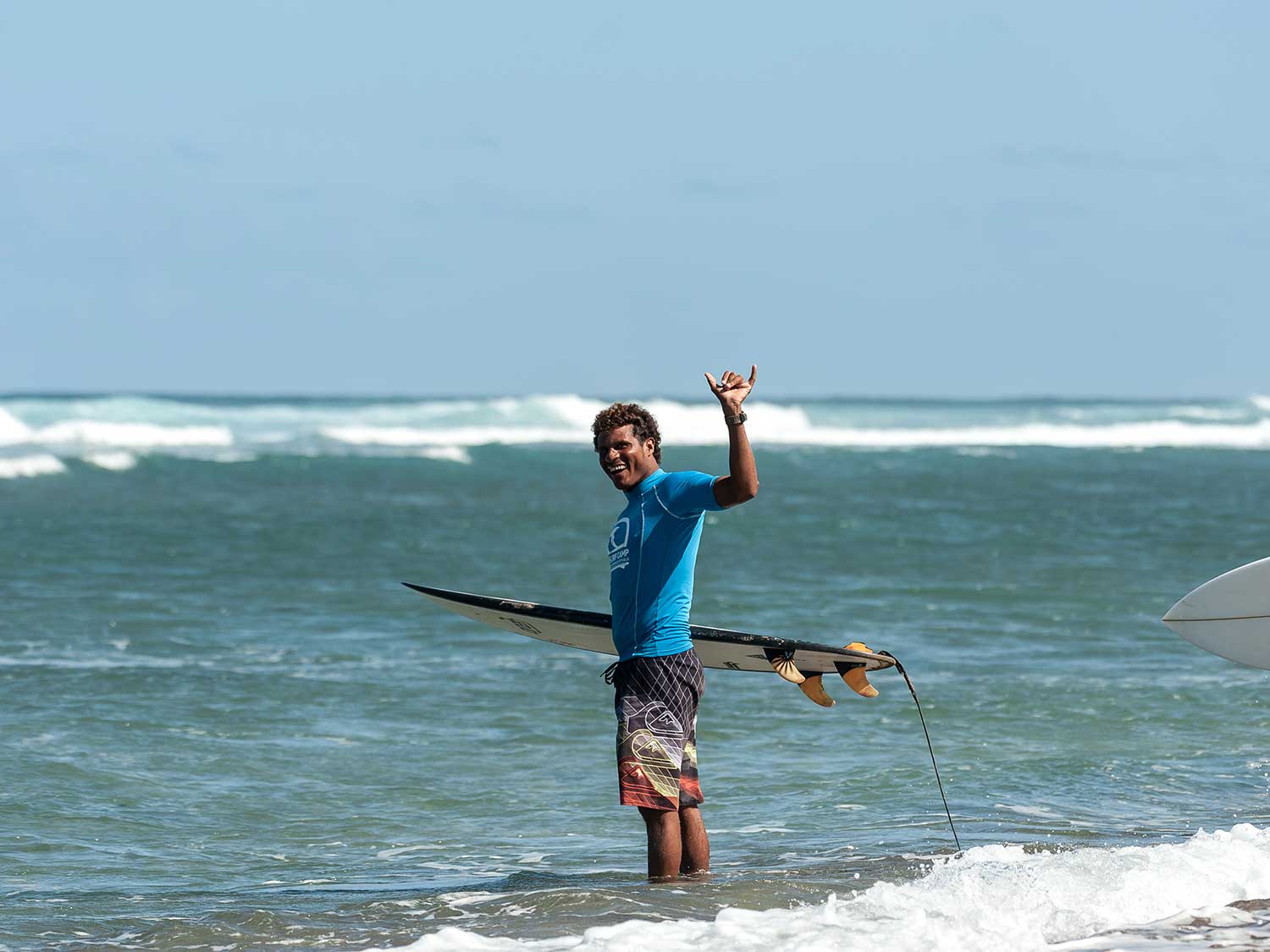The Man Who Was Raised By The Ocean
How Luciano Gonzalez overcame life’s tragic breaks to achieve water sport fame.
Tropical plants hang over our outdoor table as sun-kissed patrons chat airily over coffee at Vagamundo Café in Cabarete, a small town on the north coast of the Dominican Republic. Across from me sits Luciano Gonzalez, former Red Bull athlete, Dominican athletic ambassador, and four-time champion of Master of the Ocean—a grueling multi-disciplined water sport competition that includes surfing, kitesurfing, windsurfing, and SUP.
Fit, tanned, and perpetually dressed in board shorts, flip flops, and a loose t-shirt, Luciano now runs Ocean Academy DR, a mobile water sports school. A paradise renowned by generations of kite surfers for ample offshore wind and surfers for reliable swells, Cabarete's natural abundance has made it the water sports capital of the Dominican Republic.
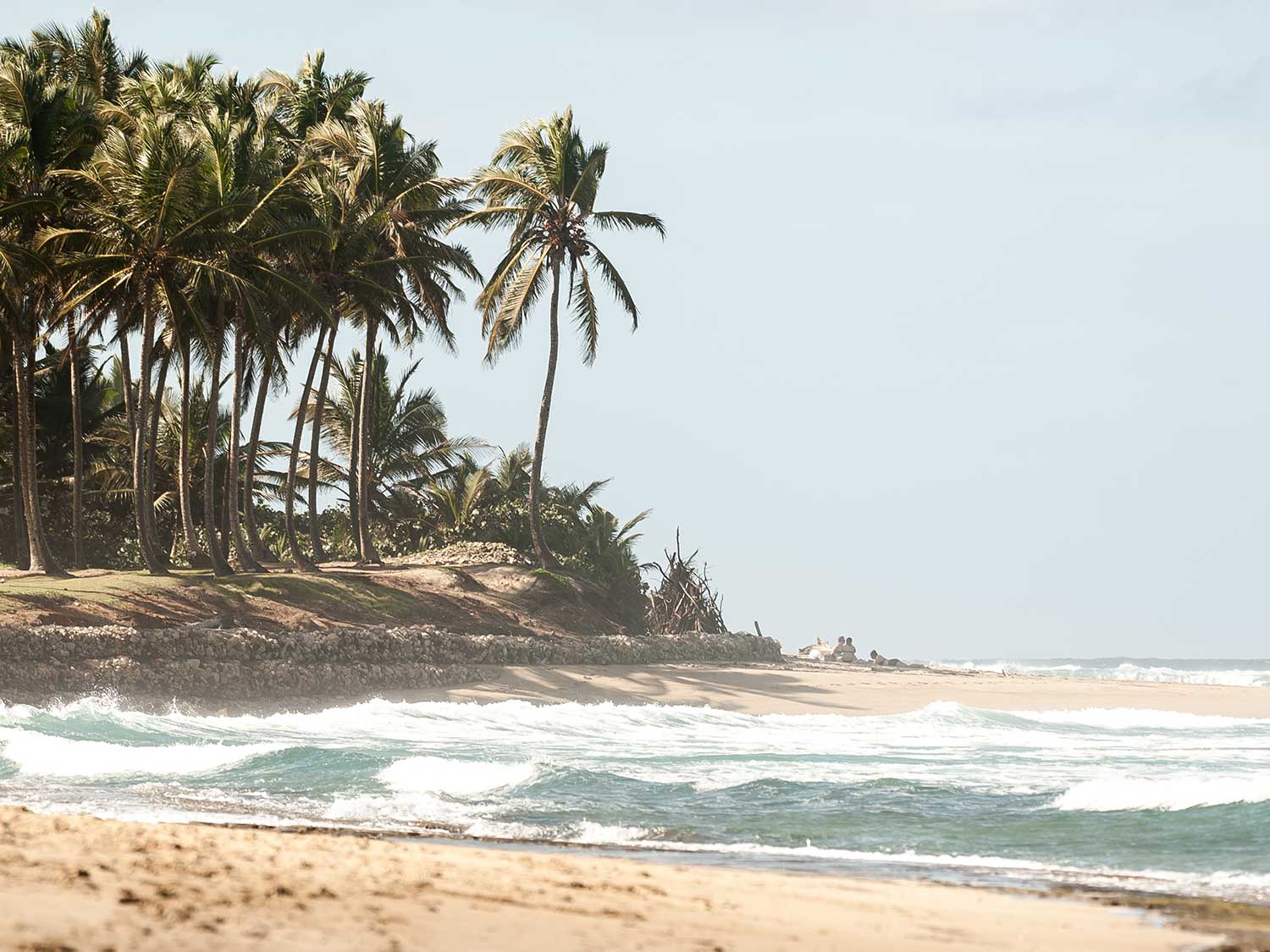
"Cabarete is perfect," says Luciano, his trademarked toothy grin growing across his face. "I've traveled all over the world. Thirty years in water sports. And anywhere I travel in the world, I need to drive one hour to go surfing, two hours to go kiting, five hours to go to a restaurant. I want one place that has everything I need. And luckily for me, Cabarete has that."
Yet, a tinge of sadness lies below his sunny, Caribbean disposition. At age six, his father murdered his mother, leaving Luciano, along with his three siblings, orphaned. "I never saw my dad after that. I lost both my parents that day," says Luciano looking down into his latte. The boy and his siblings moved in with his grandmother in what is now Kite Beach, a beach point just above the main town of Cabarete. As he tells it, the ocean became his mother that day.
"That was an issue I had growing up, missing some big love in my life. It was easier for me to just watch the ocean and figure out what I wanted to do with my life. The ocean just gave me so much peace."
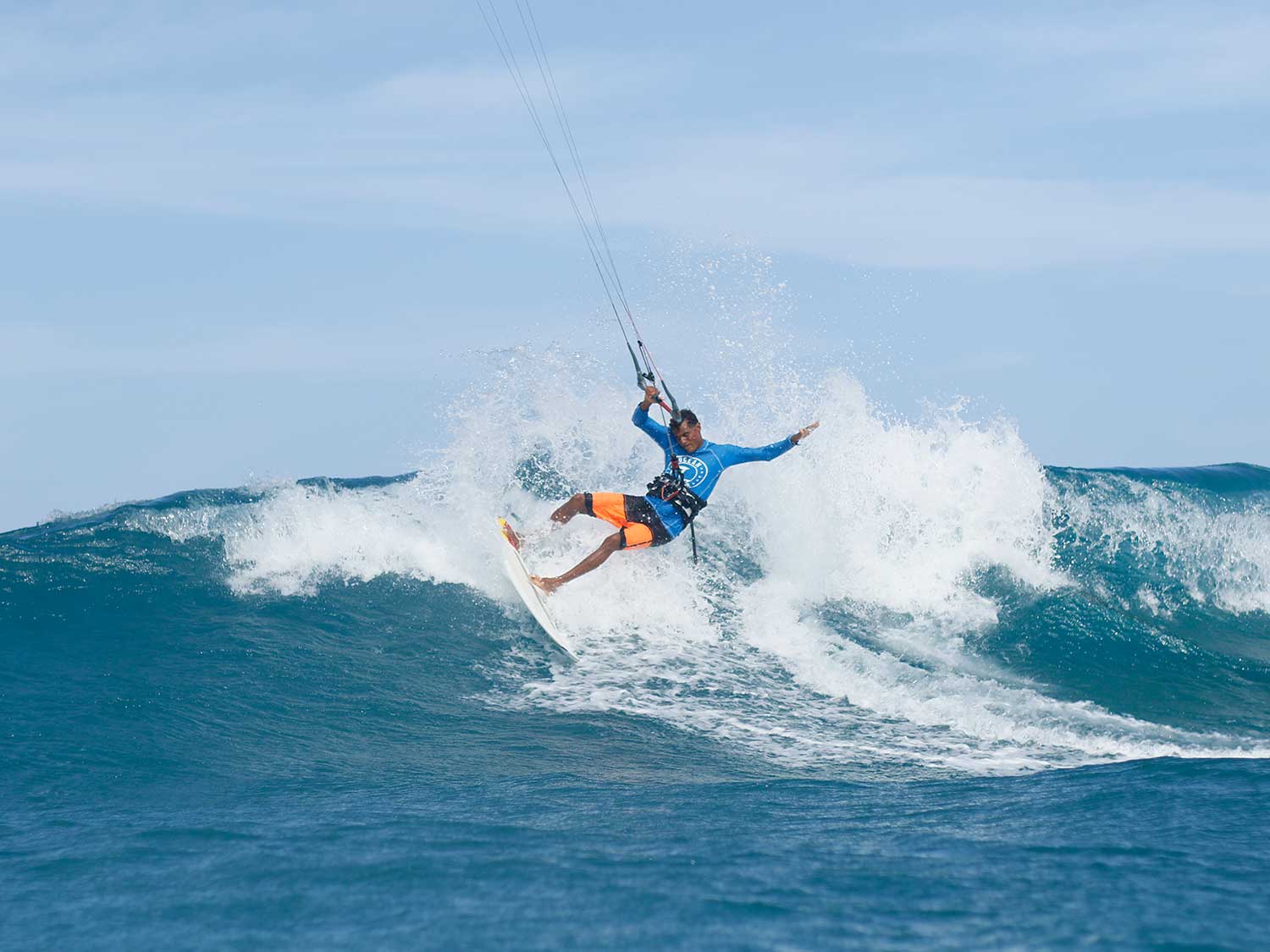
An uncle, who had found some success as a professional windsurfer, encouraged young Luciano to pursue water sports. That encouragement soon gave Luciano purpose. "From my grandmother's house you could see all the windsurfers practicing in the afternoon." Despite his grandmother's reticence, he spent his mornings, afternoons, and evenings playing and practicing in the ocean.
In 1998, when Luciano was 13 years old, several French athletes came to town to set up a school around a new sport, kitesurfing, also known as kiteboarding. Cabarete's local offshore winds and warm waters provided the perfect conditions for the new sport to thrive.
"These guys were crazy. It was the only water sport where you could fly" Luciano says smiling. "They needed young people to work for them, help develop the sport and promote it. I just came at the right time."
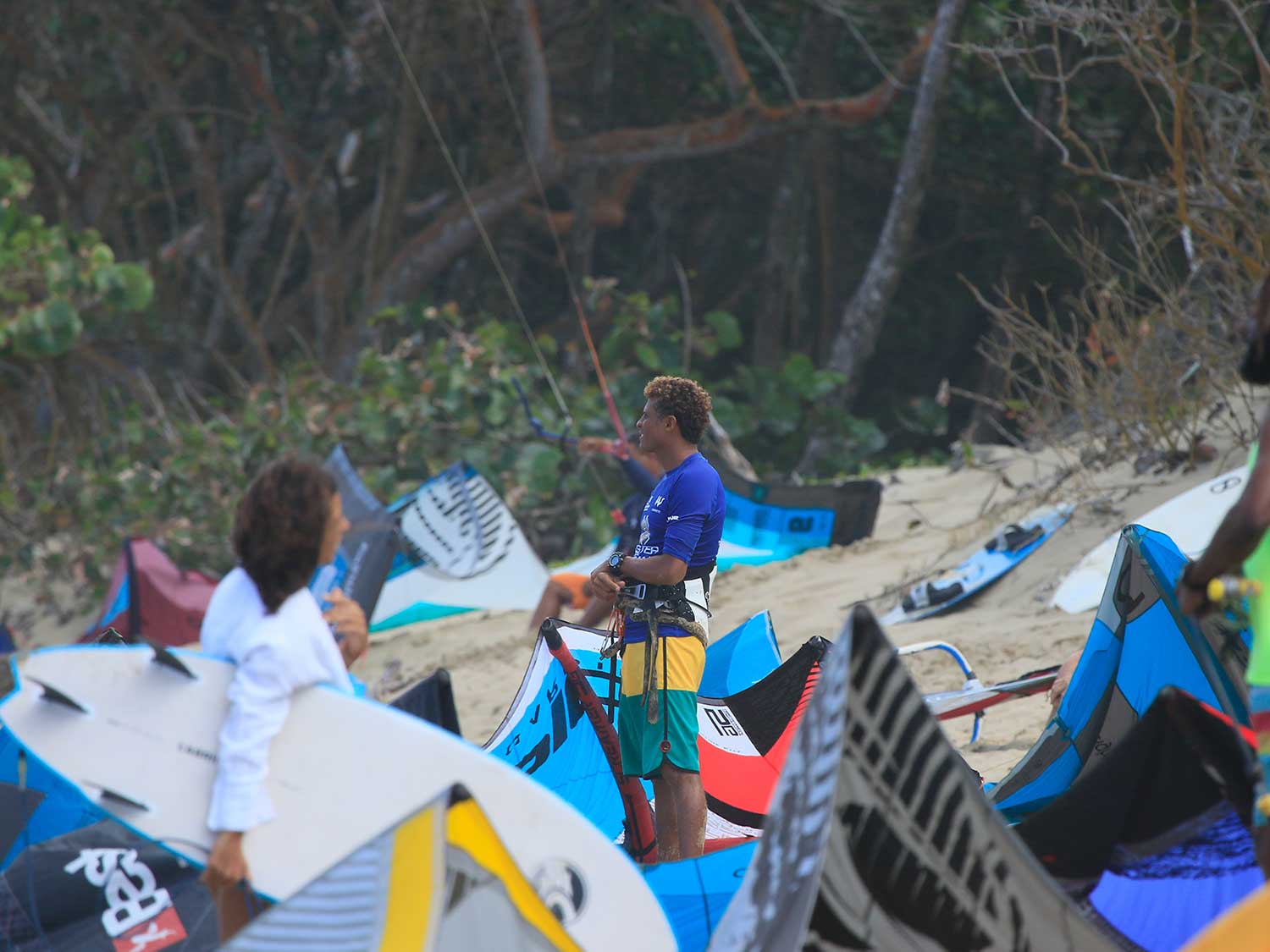
Learning kitesurfing came with new challenges, most notably the cost. A full set of kitesurfing equipment runs several thousand U.S. dollars. But the new schools springing up on Kite Beach were starved for talent and offered the locals work. Luciano would work and train for two years at several schools to buy his own kite and equipment. His growing prowess in the sea and air gained the attention of fellow kite surfers looking for fresh faces to push the sport further.
A stroke of luck would propel Luciano to kitesurfing fame. A sports photographer, from a European Kitesurfing magazine, came to Kite Beach to feature the schools promoting the sport. "They took a picture of me by mistake—a really good photo. They published it in a kiteboarding magazine which was one of the biggest kitesurfing publications in Europe. Suddenly all the kitesurfing companies started looking at me from the magazine, and they were like, 'OK, I want that guy.' I got Red Bull and all the other sponsorships because of that one photo."
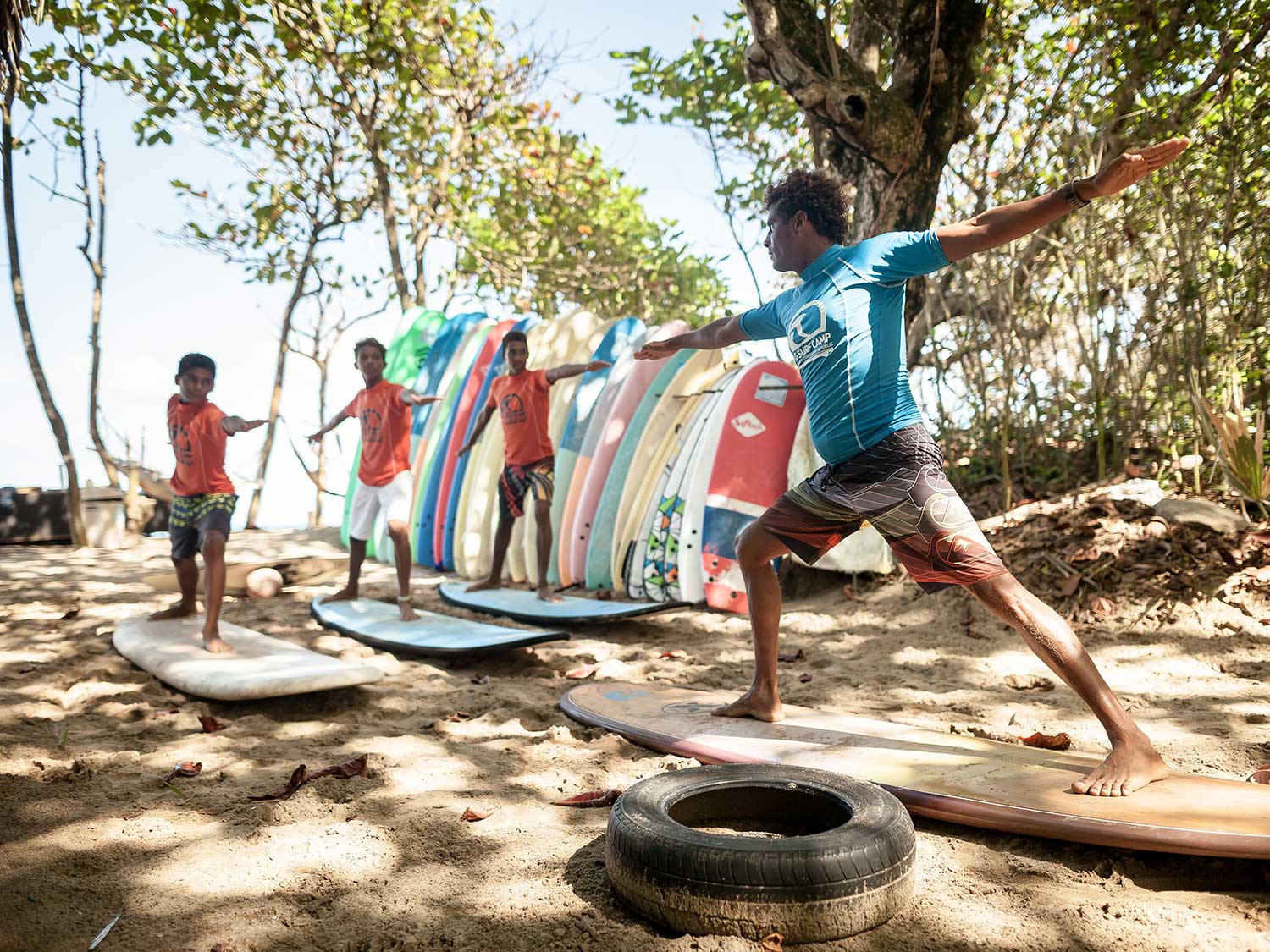
After 15 years of touring Europe, Latin America, and the Caribbean as a professional kite surfer, Luciano returned to the shores of Encuentro beach in 2015 to share his love of water sports with a new wave of students. He opened a school on the beach that was soon shutdown due to a fight between the government and the mafia.
In 2018, a new government brought a wave of private real-estate development and a current fight to keep the beaches public for the next generation of water sport enthusiasts. The pandemic of 2020 crippled the small town's economy in which 60 percent of the population relies on tourism.
As Luciano heads to his surfboard packed Kia from which he runs his company, he often ponders what a lifetime by the ocean has taught him. The Caribbean sky turns pinkish orange as the sun sets over the palms to the West.
Smiling wistfully, he shares a piece of wisdom, both practical and metaphorical, that he tells his students every day, "That's what the ocean teaches you. You're going to have waves breaking over your face. You move past it. Because all you can do is get back on the board."
Wes Morton is a writer, media professional, and fervent globetrotter. He is based in Los Angeles. Visit here for more of his work and writing.
